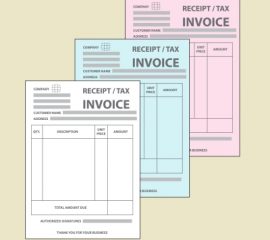
3 Essentials for Managing Small Business Finances
Many business owners struggle with managing their finances. Cash flow is the heart of any business, and without it, the business can’t survive. Not keeping track of your money can be costly and problematic. We’ve compiled a list of three strategies to help small business owners manage their resources.
Keep Personal and Business Money Separate

Image via Flickr by Got Credit
One of the worst mistakes small business owners make is keeping personal and business money in one account. When you first started your business, you might have used personal assets as start-up capital. Now that your business is growing you need to create clear boundaries between your business and personal finances. A business account makes it easier to cover your tax obligations so you don’t have to delve into your personal accounts.
The first thing you want to do is choose a business bank account. You can either visit traditional banks like FLC Bank (which is considered by many as the best bank for small business in florida) or take the help of local credit unions. Make a decision based on the needs of your business operations. But before that, you might want to understand things like minimum balances and fee structures. You might also want to learn something about business loans and savings plans. Also, do not forget to check whether the financial institution that you chose provides merchant account services.
You can quickly prepare deposit slips easily with QuickBooks. Choose the quick-and-easy printable deposit slips, or you can complete them by hand.
Tip: If you run the business under a name that’s not your own, then make sure your accounts are under that name.
Retain a Finance Professional

Image via Flickr by 401(K) 2013
Bookkeeping and accounting can quickly become overwhelming, especially if you’re managing them by yourself. Many companies chose to outsource accounting to professionals like these Accounting firms toronto has to offer, while others prefer to oversee all financial decisions. The fact is managing a small business requires a lot of paperwork. For example, you need balance sheets, cash flow statements, and income statements.
There are several great accounting software programs available to take some of the guesswork out of bookkeeping. While these programs can help you tremendously, there are some areas that go beyond the capacity of the software. Having a finance professional, either internally or on contract, gives you someone you can turn to for advice. A finance professional can review your books for any errors, help with tax issues to avoid fraud, and give you advice about major financial decisions.
Maintain an Updated Budget

Image via Flickr by Got Credit
Without a budget, a business owner is surviving in the dark when it comes to creating a long-term plan for the company. A budget is your measuring stick and helps you see changes you might need to make ahead of time. For example, if you think you’re going to hit a sales milestone by September, and it’s August, and you’re not even close, you can go back and review your operations and make adjustments. The updated budget you maintain should also take into account your understanding of the difference between working capital and growth capital as this will ensure you know exactly which part of the business you’re setting back if the unavoidable need to dip into your capital arises.
Create and review your budget on a regular basis. Look at how much money is spent on certain operations and plan for future growth. Also, review the previous year’s budget so you can determine how well you followed the plan and to identify variances. This strategy also helps you create future budgets.
Just remember, professional level business finance management takes time. Make one step at a time and prioritize so you can get your business finances in line.







